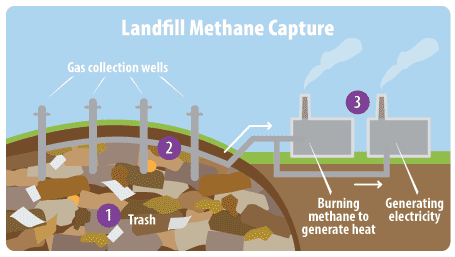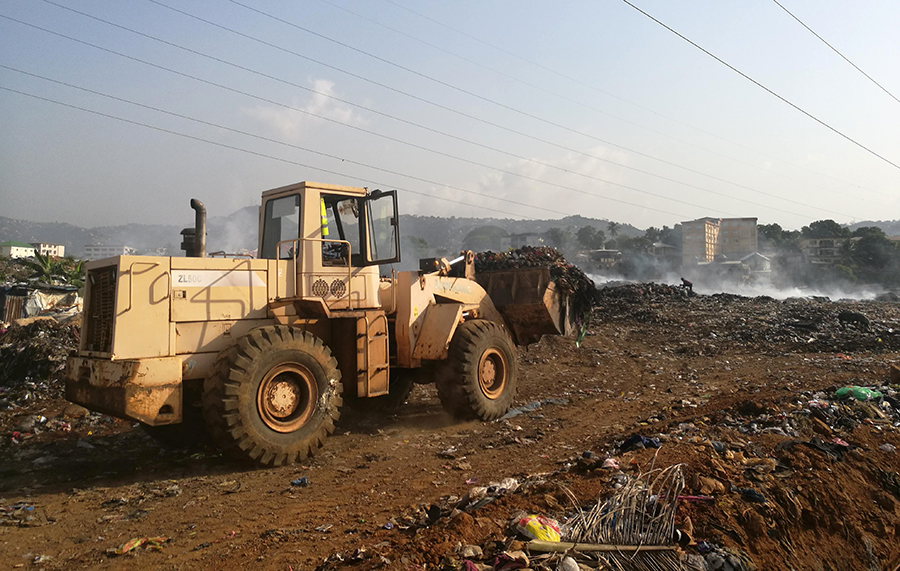DEVELOPMENTS
Supporting Environmental Health Through Governance Reform
Apr 12, 2022
Poor solid waste management hurts the environment, people, and economies. It contributes to economic losses from unrecovered recyclable materials (plastics, metals, paper, glass) and unrecovered energy from organic waste, as well as posing a threat of infectious diseases to humans. Negative environmental impacts from untreated waste include land and water pollution through toxins leached into groundwater and the release of methane gas from waste decomposing into the atmosphere.
Two Countries in Solid Waste Management Crisis
In the wake of high economic and population growth, as well as political and sectarian conflicts, both Iraq and Afghanistan spiraled into a solid waste management crisis. Under pressure from other urgent public service and political security demands, their local governments could not keep pace with basic solid waste management collection services. Worse, the solid waste that was collected was typically dumped at open dumpsites or non-compliant landfills, posing stark dangers to vulnerable waste workers who operated these facilities, while also leaking toxins into groundwater and methane gases into the atmosphere.
The consequences of poor solid waste management are avoidable by implementing effective waste management strategies including: the introduction of waste management policies; source segregation of waste; the establishment of material recovery facilities to sort and recover valuable materials from the waste stream; separate collection for organic waste; and the construction of engineered landfills with methane capture and utilization.
Methane is a hydrocarbon that is a primary component of natural gas. It is also a greenhouse gas and has 34 times the greenhouse effect of carbon dioxide, resulting in landfills being a top source of global methane emissions (releasing 12 percent of the world’s total, by some estimates). The gas also poses a dangerous fire and combustion risk.
Finding an Energy Opportunity
But methane from landfill waste is not all bad. As the main ingredient in natural gas, it also presents an opportunity—if captured properly—to be burned to produce electricity. Capturing methane before it gets into the atmosphere can generate valuable energy for societies while also helping to reduce the effects of climate change.

Graphic: U.S. Environmental Protection Agency.
Addressing Solid Waste from an Unlikely Angle
In Iraq and Afghanistan, in partnership with local governments, DAI investigated solutions to improve waste management and assess the feasibility of turning waste into energy. The U.S. Agency for International Development (USAID)-funded Iraq Governance and Performance Accountability (IGPA) project, known locally as Takamul (Integration), and the Strong Hubs for Afghan Hope and Resilience (SHAHAR) project are both governance reform programs. Through systems-level approaches, the projects support effective and transparent governance to meet citizen needs, including enhanced public utility service delivery. In both contexts, waste management and landfilling were top priorities, so DAI supported the governments with assessing and improving their waste management systems.
IGPA and SHAHAR built the capacity of both governments to assess, manage, and improve waste management systems. IGPA provided in-depth technical training to more than 80 staff of Iraq’s Ministry of Planning, civil society groups, and operators of water treatment and sewerage plants in some provinces to enable them to address the underlying engineering, operational management, and quality control challenges required to effectively manage landfill sites and other treatment plants across Iraq. The support not only focused on curbing the waste management crisis at hand, but also on using methane capture technologies to extract energy.
Implementing Tailored Tools to Upgrade Dumpsites
Both IGPA and SHAHAR also designed, trialed, and employed accompanying tools, pegged to international best practice standards, but tailored to local contexts, to help local partners assess and implement the available technologies. Some tools help users identify environmental hazards at landfill and waste disposal sites, while others offer a checklist for spotting factors that lead to risky outcomes, like methane flaring—burning excess natural gas that can result in harmful emissions. Through training on these tools and field visits to build capacity in engineering methods for methane gas containment and capture, IGPA implemented effective, locally appropriate, and affordable technologies to upgrade old dumpsites to enable methane capturing and utilization.
The tools and training modules provided users from government ministries as well as landfill site managers with the knowledge and skills required to tap methane resources to produce clean energy for generating electricity or heat, on-site, and mitigating methane leakage into the atmosphere—providing a twofold environmental benefit: preventing landfill emissions and displacing the requirement for less sustainable energy alternatives, such as coal, oil, or natural gas. If methane capture could be successfully implemented in this context, it would be a win-win.

Topsoil operations at a dumpsite. Photo: Joshua Palfreman.
Ensuring Sustainability Through Good Policies
The IGPA team also helped influence policy definitions in the new waste management law of Iraq—expected to strongly promote and influence the uptake of methane gas capture systems across the country, where underlying engineering and operational management conditions allow.
By engaging with the private sector, these programs helped governments find ways to stop—and even reverse—the negative environmental impacts of open dumpsites. The programs also helped design and trial field checklists to assess the feasibility of methane capture at dumpsites and landfills across the country. Through remedial engineering measures, they ensured that dumpsites could support methane extraction activities, while also mitigating the risk of methane fires or dumpsite landslides.
IGPA and SHAHAR’s successful waste management reform efforts demonstrate how closely linked economic and governance health is to environmental health and sustainability. IGPA, for instance, streamlined 100 water, solid waste, and social service delivery processes, which improved government services in eight provinces. The project also created a government-civil society coalition that conducted more than 425 water and solid waste management campaigns in seven provinces, with local government funding of nearly $900,000.